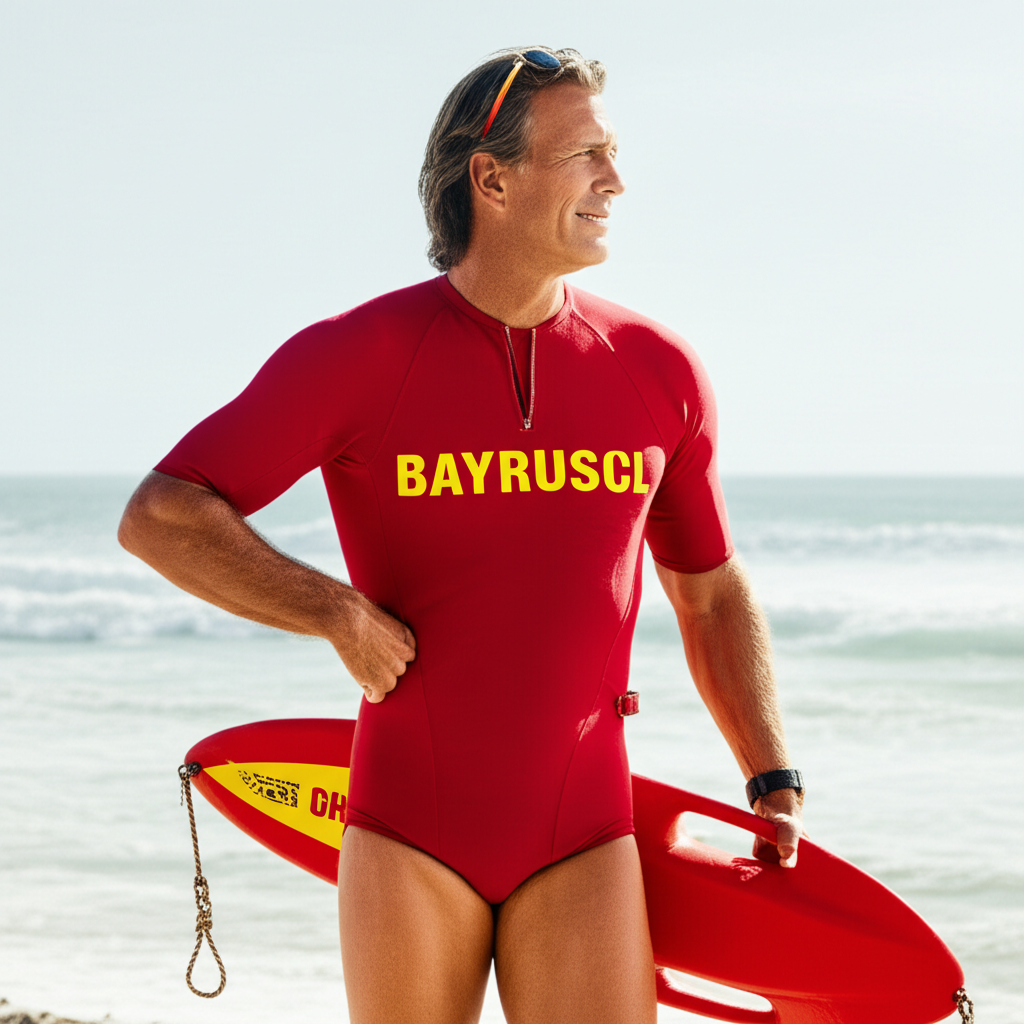Kelly Slater’s Unexpected Baywatch Blues: Beyond the Beach Blanket Bingo
Surfing icon opens up about his challenging experience on the iconic 90s drama.
For many, Baywatch conjures images of sun-drenched beaches, dramatic rescues, and an undeniable cultural footprint on 1990s television. The show, known for its ensemble cast and high-stakes lifeguard drama, launched many of its stars into global superstardom. However, not all experiences on the iconic set were as idyllic as the on-screen lifeguards’ tans. Recently, surfing legend Kelly Slater offered a candid look behind the scenes, revealing a far less glamorous reality to his time on the show.
A Surfer’s Unexpected Gig
Kelly Slater, a name synonymous with professional surfing and a record-breaking eleven world championships, found himself stepping onto the sandy shores of Baywatch in the mid-1990s. His role as Jimmy Slade, a character who shared a romantic storyline with Pamela Anderson’s C.J. Parker, was a notable departure from his competitive surfing career. While the guest stint might have seemed like a natural fit given his athletic prowess and beach-centric lifestyle, Slater’s recollection paints a different picture.
The Mismatch: On-Set Struggles and Personal Discontent
In a candid discussion with news.com.au, Slater expressed a profound dissatisfaction with his experience on the show. He described his time on Baywatch as “miserable,” a stark contrast to the fun-loving image the series projected. The surfing icon detailed feeling out of his element, finding the acting process and the on-set environment challenging. Slater’s comments suggest a disconnect between his personal comfort zone and the demands of television production.
According to Slater, the repetitive nature of filming and the pressure to perform in a way that felt unnatural to him contributed significantly to his unhappiness. He reportedly found the acting itself to be a difficult hurdle to overcome. While the show was a massive hit, attracting millions of viewers worldwide, Slater’s personal enjoyment was evidently minimal. His account highlights that even seemingly glamorous television roles can involve significant personal challenges for those involved.
Industry Perspectives: Acting vs. Athleticism
Slater’s experience touches upon the often-underestimated complexities of transitioning between different performance-based industries. While both professional surfing and acting require dedication, discipline, and public presence, the specific skill sets and environments are vastly different. For an elite athlete like Slater, accustomed to the direct feedback of competition and the physicality of his sport, the nuanced and often artificial environment of a television set could indeed be a jarring adjustment.
The success of Baywatch was built on a formula that resonated with a broad audience, blending drama, action, and the allure of its cast. However, the experience of its stars varied greatly. While some thrived in the acting world, others, like Slater, found it less fulfilling. This disparity underscores the fact that fame and visibility do not always equate to personal satisfaction or a natural aptitude for every public-facing role.
The Trade-offs: Exposure vs. Enjoyment
For Kelly Slater, the decision to appear on Baywatch likely involved a consideration of increased public exposure, which could have had potential benefits for his surfing career at the time. However, his retrospective comments suggest that the personal cost, in terms of his own comfort and enjoyment, outweighed any perceived advantages. This presents a common trade-off many individuals face when stepping outside their primary areas of expertise: the potential for broader reach versus the risk of compromising personal well-being or passion.
It’s also worth noting that Baywatch was a highly produced show with a demanding shooting schedule. For an active professional athlete, balancing such commitments with training and competition could present significant logistical and physical challenges, though Slater’s primary stated reason for his discontent appears to be the acting itself.
Looking Ahead: Legacy Beyond the Screen
Despite his negative experience on Baywatch, Kelly Slater’s legacy in the world of professional surfing remains undisputed and continues to grow. His career has been marked by an unparalleled level of success and a profound influence on the sport. His willingness to share his less-than-ideal experience on the iconic show offers a valuable reminder that public perception of a television program does not always reflect the personal realities of those who create it.
Slater’s candidness provides an interesting counterpoint to the often-glossy portrayal of celebrity life. It suggests that even within highly successful ventures, individual fulfillment remains a critical factor, and not every opportunity, regardless of its popularity, is a perfect fit for everyone.
Key Takeaways
- Professional surfer Kelly Slater described his time on the television show Baywatch as “miserable.”
- Slater cited feeling out of his element and struggling with the acting process as primary reasons for his discontent.
- The experience highlights the significant differences between athletic performance and television acting.
- For athletes, balancing external opportunities with personal comfort and passion can involve difficult trade-offs.
- Slater’s enduring legacy is firmly rooted in his extraordinary surfing career, irrespective of his brief television stint.
References
- Kelly Slater: Why I hated being on Baywatch (news.com.au)


Leave a Reply
You must be logged in to post a comment.